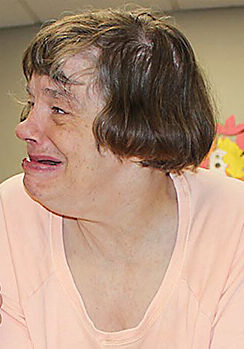Story 8 – The Welsch Family
Sep 22, 2021

Ed Welsch recalls trips with his parents to the Cambridge State Hospital where the family would visit his sister, Patty Welsch.
Her family made a difficult decision to move Patty, who has an intellectual disability, to the Cambridge hospital when she was 12 years old, expecting her to receive support. But the state’s hospitals were overcrowded with increasingly deteriorating living standards. Ed Welsh remembers them as “minimal and disturbing.”
“My parents, especially my father, became so upset with the conditions at the Cambridge State Hospital. He began contacting law firms to file legal actions to improve the conditions there,” he said.
Filed out of concern for her well-being, the family’s class action lawsuit would become the catalyst for drastic change in Minnesota and the United States. After more than a decade, the Welsch v. Noot (1967-1980) judgement led to the closure of Minnesota’s six state-run institutions. Community support organizations like Rise significantly expanded services as people who had lived in state hospitals moved back into their communities.
Patty Welsh joined Rise’s Anoka Community Integration Program (CIP), which connected her with recycling and light janitorial work for about 15 years. Now in her 70s and retired, she receives Rise day supports where she enjoys going for walks, coffee breaks and other activities, including auditory and sensory support.
“We’ve both been very happy with the day-to-day services and staffing available to Patty. And she’s developed some special relationships with staff,” he said.
Patty Welsch now lives in a group home in Brooklyn Park where she has her own room and benefits from one-to-one direct care. Ed is her guardian.
With years-long legal battle of Welsch v. Noot far behind them, Welsch says he’s happy his family has made such a positive and lasting effect in people’s lives around the country and in Minnesota.